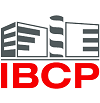UNDER CONSTRUCTION
Introduction
Tissue homeostasis is dictated by a dynamic cross-talk between cells and their surrounding extracellular matrix (ECM). ECM not only ensures an architectural role for tissue cohesion and biomechanical properties, but also a physical support for cell adhesion and migration. ECM also acts as an effective informative entity, as numerous matrix components are able to induce and regulate intracellular cues: either directly, by binding to cell-surface receptors, or indirectly, by sequestering, presenting and/or activating signaling factors .
These extracellular signals thus regulate cell behaviors, such as survival, proliferation, motility and differentiation. In a physiological context, constitutive ECM components are suggested to exert mainly “suppressive or homeostatic forces”, enabling the maintenance of cell differentiation and function, and preventing healthy or pre-neoplastic cell expansion. However, in pathological contexts (connective tissue disorder or neoplasia) or tissue insults (lesion or chronic inflammation), the molecular composition of the ECM is profoundly modified, which contributes to the alteration of the biomechanical properties of the tissue and the modification of cell behavior.
In such context, matricellular proteins are a unique family of secreted modular proteins being at the interface between structural ECM proteins, cells and soluble signaling factors. Consequently, they play modulatory roles at both cell and tissue levels, thus rendering ECM as a dynamic microenvironment in a permanent evolution.
Our common efforts are dedicated to understand the role played by a subfamily of matricellular proteins, the Tenascins, and namely Tenascin-X, in tissue homeostasis maintenance (i.e. architecture and function), through the use of combined approaches, associating in vitro (3D culture systems) and in vivo (genetically engineered mice) models.
Contacts
Equipe Protéines Matricellulaires & Dérégulations Pathologiques (MATRIPath)
Laboratoire de Biologie Tissulaire et Ingénierie thérapeutique – CNRS – UMR 5305 – Université Claude Bernard Lyon 1
Institut de Biologie et Chimie des Protéines
7, passage du Vercors 69367 LYON CEDEX 07
FRANCE
E-mail : ulrich.valcourt@ibcp.fr
Tel : : +33 (0)4-72-72-26-53
Fax : +33 (0)4-72-72-26-04



